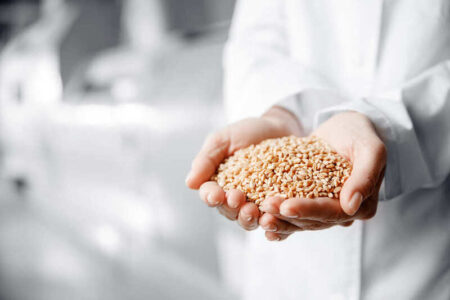FSS reiterates support for Eatwell Guide

Food Standards Scotland (FSS) has reinforced its support of the Eatwell Guide, which is based on scientific evidence reviewed by independent experts, without outside influence or bias.
The previous Eatwell Plate was updated to the Eatwell Guide to take account of the advice of the Scientific Advisory Committee on Nutrition (SACN) on Carbohydrates and Health. The included over 600 peer reviewed scientific papers, was subject to a robust quality assurance process and public consultation. FSS fully supports and values the work of the SACN.
Specifically on carbohydrates, SACN looked at all the evidence and concluded that total carbohydrate is neither a detriment nor a benefit to health, but it did find evidence against sugar as a carbohydrate. SACN also found clear protective benefits to increasing fibre intakes. Starchy carbohydrates, particularly wholegrains, rice and pasta, are recommended as part of a balanced diet. Pulses such as beans and lentils are valuable sources of both protein and fibre, it says.
Development of the Eatwell Guide, which was produced in association with FSS, was led by Public Health England (PHE), which established an external reference group with a limited remit to gather views and potential methods for producing the new guide. The group comprised a range of stakeholders from voluntary sector, health experts, academia and industry. PHE also commissioned the University of Oxford, which used high quality nutritional data together with current dietary recommendations, to produce the guide.
Criticism of the Eatwell Guide has been generated by a number of different sources, none of which has undergone the robust and independent processes described above. As such, the criticism is unhelpful and confusing to consumers, warns FSS.
It is clear that Scotland has failed to make any meaningful progress towards meeting its dietary goals over the last 15- 20 years. Claims that government healthy eating advice is the cause of the obesity epidemic are at odds with clear evidence of lack of progress towards the goals. On average, we continue to consume too much fat, sugar and salt, too little fibre, too many discretionary foods such as confectionery, cakes, biscuits and savoury snacks and not enough fruit and vegetables, oil rich fish and wholegrains.
Following evidence-based dietary advice is key to meeting our dietary goals and improving Scotland’s health, FSS says. The Eatwell Guide is a helpful and valuable tool for communicating this advice.
The food industry has an important part to play in achieving outcomes that are in the best interests of consumers and FSS is committed to working collaboratively with others to improve Scotland’s diet.
FSS says this does not mean it is in ‘industry’s pocket’ but if, for example, reductions in sugar consumption are to be achieved then industry has a critical role to play. To ignore the positive contribution industry can make is actually to the detriment of consumers, FSS notes. However the FSS board is clear that if insufficient progress is made, then alternatives such as regulation should be considered.



